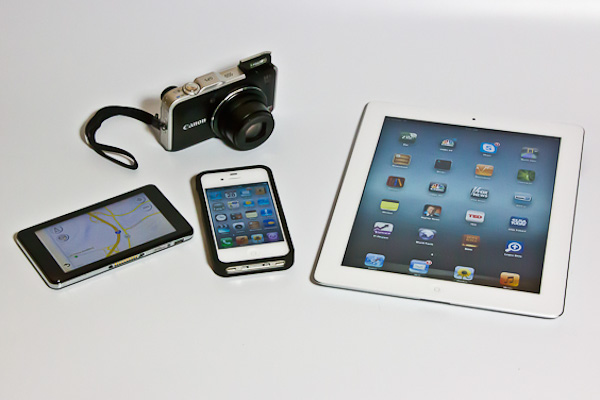The Impact of Lithium Batteries on Portable Electronic Devices
Portable electronic devices have become integral to our daily lives, offering convenience, connectivity, and entertainment. These devices, such as smartphones, tablets, and laptops, rely heavily on the power provided by lithium batteries.

Fall color tour to Ouray, CO.
Lithium batteries are rechargeable batteries that utilize lithium ions to store and release electrical energy. They have gained significant popularity and widespread adoption due to their high energy density, longer battery life, and compact design. Portable electronic devices, ranging from smartphones to wearable gadgets, have greatly benefited from the advancements in lithium battery technology.
In this article, we will explore the impact of lithium batteries on portable electronic devices, examining their advantages, applications, environmental implications, and future developments.
Evolution of Portable Electronic Devices
Portable electronic devices have come a long way since their inception. In the early days, devices such as calculators and portable radios were powered by disposable batteries, limiting their usage and convenience. However, with technological advancements, the size of electronic components has reduced while their capabilities have significantly increased. This evolution paved the way for smaller, more powerful portable electronic devices.
Advantages of Lithium Batteries
Lithium batteries offer several advantages over traditional battery technologies, making them ideal for portable electronic devices. One of the key benefits is their high energy density, allowing devices to run for more extended periods without the need for frequent recharging. This is particularly crucial for smartphones and laptops, which require sustained power throughout the day.
Moreover, lithium batteries have a longer lifespan compared to other battery types. They can endure hundreds of charge-discharge cycles without significant capacity loss, providing reliable power for extended periods. Lithium batteries are also lightweight and have a compact design, which is essential for portable devices with limited space.
Applications of Lithium Batteries in Portable Electronic Devices
Lithium batteries are extensively used in various portable electronic devices, powering their functionalities and ensuring uninterrupted usage. Smartphones and tablets, being the most commonly used devices, heavily rely on lithium batteries. These batteries enable these devices to perform complex tasks, such as multitasking, internet browsing, and multimedia playback, for extended periods.
Laptops and notebooks also heavily depend on lithium batteries, allowing users to work or entertain themselves while moving. Lithium batteries’ lightweight and long-lasting nature makes them ideal for these devices, enabling users to be productive for hours without needing a power outlet.
Wearable devices, such as smartwatches and fitness trackers, have recently gained immense popularity. These devices utilize lithium batteries due to their small size and ability to provide power for extended periods, ensuring continuous tracking and monitoring.
Cameras and camcorders benefit from lithium batteries as well. The high energy density of these batteries allows photographers and videographers to capture precious moments without worrying about running out of power. Furthermore, portable gaming consoles, such as handheld gaming devices, rely on lithium batteries to provide an immersive gaming experience.
Environmental Impact of Lithium Batteries
While lithium batteries offer numerous advantages, their production and disposal have significant environmental implications. The extraction of raw materials, such as lithium and cobalt, for battery production involves mining processes that can harm ecosystems and local communities. Additionally, the manufacturing processes of lithium batteries consume a significant amount of energy and produce greenhouse gas emissions.
The disposal and recycling of lithium batteries also pose challenges. Improper disposal can lead to the release of toxic substances, causing harm to the environment and human health. However, recycling initiatives are gaining traction, aiming to recover valuable materials from used lithium batteries and minimize their environmental impact.
Future Developments in Lithium Battery Technology
The development of lithium battery technology continues to push boundaries, aiming for even more efficient and sustainable power solutions. One area of research is the advancement of solid-state batteries, which offer higher energy density, improved safety, and faster charging capabilities than traditional lithium-ion batteries.
Fast-charging capabilities are also a focus of future developments. Researchers are exploring reducing charging times significantly, enabling users to replenish their battery quickly. Moreover, efforts are being made to increase the energy storage capacity of lithium batteries, allowing devices to operate for even longer durations without recharging.
Conclusion
The impact of lithium batteries on portable electronic devices cannot be overstated. These batteries provide the necessary power to keep our machines running smoothly, offering convenience and functionality. While they bring numerous advantages,addressings their environmental implications andstrivinge for sustainable manufacturing, usage, and recycling practice is essentials.


















